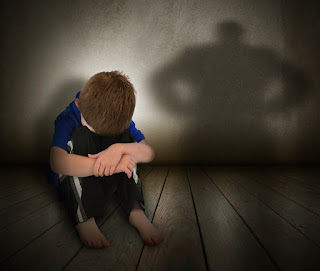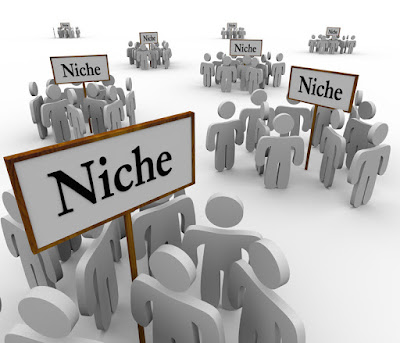I've been trying to not write this post for quite some time. There are a number of reasons I've been hesitant. I'm not sure it's my place to write it. I am not a citizen of the United States. I am not personally affected by the situation. My concern is entirely third party.
But with what appears to be an ever increasing number of seemingly random acts of gun violence I am simply unable to understand how a country can be so obsessed with private gun ownership. According to the
Small Arms Survey, there were 88.8 guns per 100 people in the US in 2007. That made it number 1 in the list, followed by Yemen (54.8), Switzerland (45.7), Finland (45.3) and Serbia (37.8). Almost 1 gun per person seems absolutely inconceivable to me. I think Canada is absurdly high at 30.8.
More significantly, a
study published in the American Journal of Medicine positively correlated the rate of gun ownership to the rate of firearm related deaths. Now, I encourage you, as always, to assess the reliability of the source. Check the paper itself, and validate whether the American Journal of Medicine is a reputable peer-reviewed publication.
I accept the reliability of the source, and I'm reasonably satisfied with the methodology of the paper. And I fully understand that correlation does not imply causation. It's entirely possible that a third factor causes both high gun ownership and high firearm fatalities. Or perhaps the more people killed with guns, the more people buy guns. There's a certain twisted logic there, I guess.
However, I'm going to make a scientifically indefensible leap and say that reducing gun ownership would probably reduce gun deaths. It's a leap that is based on logic and common sense, neither of which are scientific, but both of which are the basis for most policies we adopt in the free world.
That puts me back in the position of trying to understand how people can justify private gun ownership.
I made the mistake of searching for arguments against gun control. I call it a mistake, mostly because of the negative impact to my blood pressure. And not because of the fact that they were offering an opposing belief, but because of some of the questionable 'proofs' offered.
Jim Fetzer, of Veterans Today, jumps rather quickly to
reductio ad hitlerum in his article "
Why gun control is bad for America". In the third paragraph he cites an article by Stephen Halbrook from American Rifleman that talks about the Nazi use of firearm registration. Fetzer does go on to provide 7 other examples where he links gun control to violent atrocities.
So I'll summarize his primary argument to be: Private gun ownership is necessary because gun control may be used as a precursor to violent atrocities. (Please tell me if I've missed the point)
That argument falls a bit flat for me in a number of way.
- Private gun ownership certainly seems to have resulted in many violent atrocities (albeit with fewer victims per individual atrocity). So haven't we just changed who commits the atrocity?
- There is no statistical comparison of gun control to violent atrocities. We have 8 examples. That's 8 out of how many governments that have instituted gun control methods? The joy of anecdotes is that you can always find at least one that fits your theory.
- Finally there is no evidence provided that private gun ownership would have prevented these atrocities. If the Nazi party had not registered firearms, would that have prevented the holocaust? Unlikely. The psychology behind why the Nazi party rose to power, and why Germans who did not support them, also did not oppose them, would not likely have been materially altered by private gun ownership.
I will note that there is a theme here that does flow through many of the pro-gun articles I read. It seems (and I say seems because I have no statistical tracking) that many of these staunch advocates of private gun ownership greatly fear their government. I even have a fair bit of sympathy with that in some regards, although my fears still don't impel me to buy a gun. I fear that my government may
go too far in the line between safety and freedom, but I fight that by voting and by supporting petitions and other campaigns. So far these methods seem to
work quite well, and I haven't
endangered my family by having a gun in the house.
Penn and Teller (who I really enjoy in many ways) are firmly in the anti-gun control camp. In an episode of their series "Penn & Teller: B******t!" they make their case for why they think private ownership is a good thing. Along with the fear of government, they cite protection from criminals, and the fact that current gun control measures fail to keep guns out of the hands of criminals.
I'm not going to truly dispute the latter two, mostly because they posit points that currently do not have unequivocal scientific evidence one way or the other (at least that I've found). There are studies that correlate gun ownership with homicide and suicide rates, but not with crime overall. Studying the rate at which gun control measures fail is even more grey. And really, overall crime rates are a function of so many changing and interacting socio-economic variables that any study is questionable. How we approach drugs, the current unemployment rates, racial issues, urbanization, gentrification of neighbourhoods, and even the
sunspot cycle, seem to be factors.
I will say that, if I could decrease the homicide and suicide rates by an appreciable percentage by taking on more risk that I would be robbed, I'd make the sacrifice. But that's a personal choice, and not one I would expect everyone to make.
The rest of the articles I've read don't seem to provide anything new. They may use different words but really reiterate the same beliefs:
"The only thing that stops a bad guy with a gun is a good guy with a gun."
The problem isn’t guns, it is people.
Disarmed people are neither free nor safe - they become the criminals' prey and the tyrants' playthings.
So it really seems to come down to three main arguments, stated in different ways by different folks. Unfortunately every one of those arguments is really a belief. Each one has anecdotes offered as evidence of validity, but lacks any sort of scientific proof. Instead, each one seems to provide something to fear that may occur if guns are regulated. Beware, if guns are regulated, the government will kill people. Beware, if guns are regulated, there will be more crime. Beware, if guns are regulated, only criminals will have guns.
Does that really mean that we are dealing more with religion here than anything else? Is the problem that I'm facing, the fact that I'm trying to understand someone else's religion? Or is it simply that I'd rather be afraid that I can't go shoot the members of my government than be afraid that some random person will shoot me?



